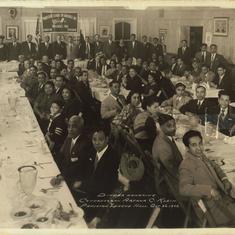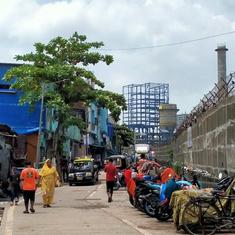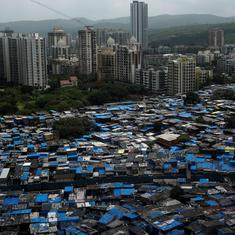Delhi's air is disastrous right now. On Wednesday, the pollution was so bad that it was impossible to ignore, with visibility down to 500 metres and air quality measures suggesting some of the worst particulate-matter numbers recorded the world over. The city felt like a gas chamber. The Union Environment Minister on Thursday put out a statement promising an advisory from the Centre on how states and individuals should approach the horrific air quality situation.
Union Minister Anil Madhav Dave's quote given to PTI reads like as succinct a description of how Delhi operates, even in a crisis, as one can expect.
"Tomorrow all the state secretaries have been called for a meeting. Then I will hold a meeting with ministers of concerned states and then also hold consultations with various stakeholders.
Then what could be a short, medium and long term plan to tackle air pollution for Delhi, what can be done today and next year, we will discuss that and we will issue a recommendation or advisory and tell the states to implement it."
At one level that might seem like an ordinary response to a major crisis that involves multiple states, since Delhi's pollution problem isn't confined to simply the capital. Addressing it would require efforts from every part of the National Capital Region, including Haryana, Rajasthan and Uttar Pradesh, as well as Punjab.
But this isn't an earthquake or a flood that has arrived as a bolt from the blue either. The pollution was wholly expected, as last year's awful winter numbers demonstrated, and no one could have been expecting this year's Diwali – when pollution numbers peak – to be any better. The fact that the secretaries and ministers of the states have to now convene and decide on short-, medium- and long-term plans for tackling the national capital region's pollution problem before an advisory can be issued suggests the government did no forward planning despite its experience last year.
Delhi government
In 2015, questioning from the courts and the National Green Tribunal pushed the Delhi government into introducing the odd-even scheme of rationing cars on the roads. When announcing its pollution plans this week, however, there was no mention of the plan or any way to address transportation – which is believed to be one of the larger sources of pollution in the capital.
Earlier in the week, the Delhi government announced its plan for addressing the capital's deadly pollution: Installing air purifiers at major traffic intersections, although this won't happen for nearly two months, strict inspections at construction sites and vacuum cleaning as well as water sprinkling to keep dust levels down.
Even these plans were announced somewhat tentatively, with the government trying to insist that it is aimed at being in place by December-January when pollution levels tend to remain stubbornly high. But the fact that even these were not prepared in say July or August, much ahead of the expected Diwali pollution spike, reflects rather tellingly on the Delhi government. The government also didn't announce any specific timeline for its plans. As if to illustrate the government's priorities, it had to cancel a Cabinet meeting on pollution on Wednesday, because its ministers were being detained over another political issue.
Union Environment Minister Dave, in fact, also tried to pass on some of the blame to the Delhi government while announcing his plan to convene more meeting son the issue.
"Making allegations and counter allegations is part of politics. I do not belong to that stream," he said. "This is a problem which is in front of Delhi. If we want a solution, then we have to work collectively for this. Every person is a polluter."










